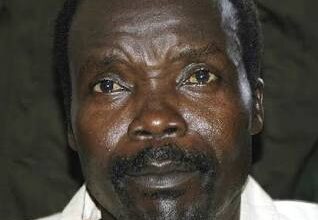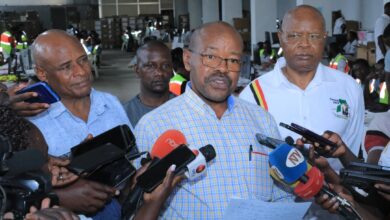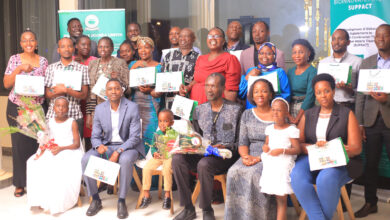Human Trafficking: the lucrative vice eating into Uganda’s soul
Police on 31st July 2023 reported that they had rescued 130 teenage girls who were being held in confinement at Akright Cell in Bunamwaya division, Wakiso district.
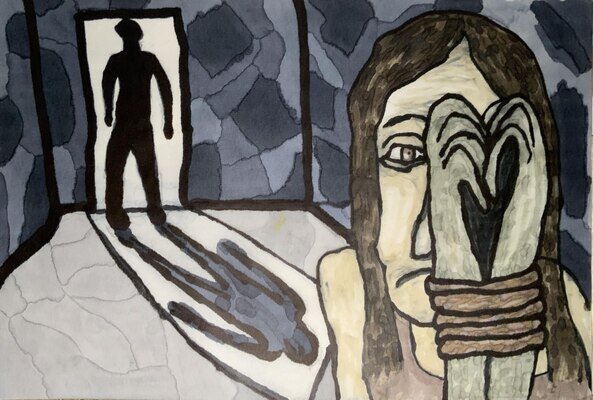
Human trafficking, the business of trading in people, is an old-age trade that deals in coercing persons to provide labor or services, including commercial sex acts. It is a lucrative global trade targeting impoverished communities and persons and developing countries.
Countries like Uganda are targeted and prone to this heinous and inhumane act. According to the 2022 Trafficking in Persons Report released by the Directorate of Citizenship and Immigration Control of Uganda, under the Ministry of Internal Affairs, Uganda registered an increase of 185.03% in human trafficking cases.
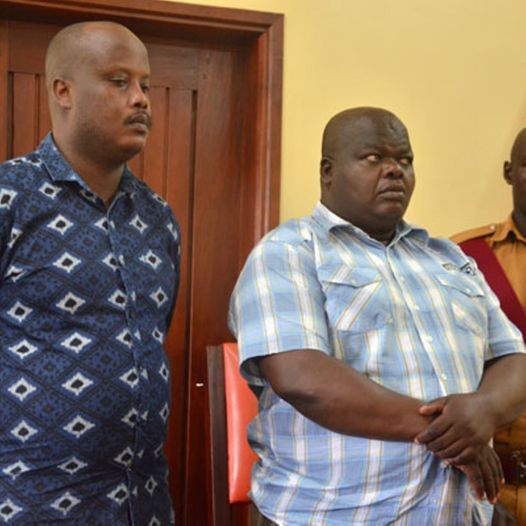
In 2021, 421 cases were reported to police, while 1200 cases were recorded by police in 2022. The rise in cases was attributed to the reopening of the economy after the Covid-19 lockdown. Also, victims or relatives of victims were able to report the cases because they has been increased public awareness, sensitization and enforcement by police and prosecution.
Domestic trafficking is more rampant
The report highlights that domestic cases continued to increase as 526 cases were reported, representing 89.3%, and 63 cases were reported as transnational trafficking, representing 10.7%, out of the 589 total cases received and registered by the Office of the Director of Public Prosecutions (ODPP) during the year 2022.
In an interview with Charmar News, Derrick Kigenyi, the Deputy National Coordinator at the Internal Affairs Ministry, said that in 2021, 357 cases were domestic, representing 88.6%, while 46 cases were transnational trafficking, representing 11.4%, out of the 403 total cases received and registered by ODPP.
Stakeholders look forward to raise awareness of the issue of human trafficking in Uganda and promote progressive actions and partnerships to combat human trafficking as one of the objectives in commemoration of the World Day Against Trafficking in Persons in Uganda… pic.twitter.com/Xw7qU2QoLw
— Benjee_🕵️ (@_Benjee256) July 30, 2023
“In all the cases registered in 2021, the month of March registered the highest number of cases, 138; April registered 106 cases, May registered 107 cases; June registered 114 cases; September registered 108 cases; October registered 113 cases; while November registered 104 cases. January registered the lowest, with 97 cases,” he explained.
In 2022, April registered the highest number of victims with 339 victims; September with 262 victims; and June and July registered 219 victims. “The lowest was August and December with 70 victims. Out of the total number 762 were female adults, 739 were female juveniles, and 371 victims were male adults while 227 were male juveniles,” he cited.
Women and children targeted
Julius Twinomujuni, the National Coordinator Office of Prevention of Trafficking in Persons, acknowledged that human trafficking remains a grave concern worldwide. He reveals that children and women are the primary victims of fraud and deception.
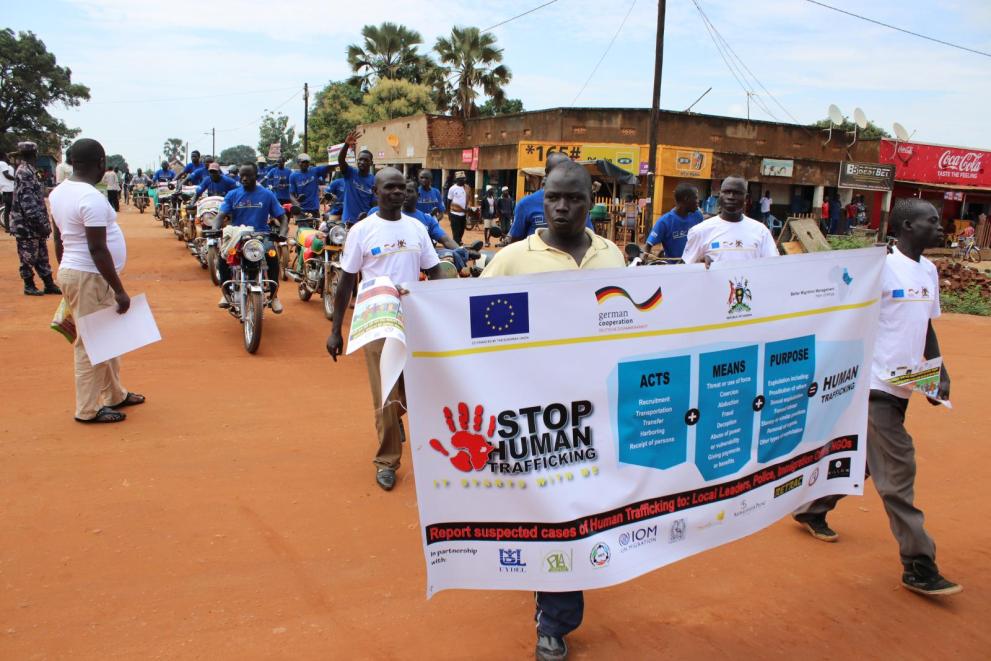
True to Twinomujuni’s words, Kampala Metropolitan Police on 31st July 2023 reported that they had rescued 130 teenage girls who were being held in confinement at Akright Cell in Bunamwaya division, Wakiso district.
The Kampala Metropolitan Police Deputy Spokesperson, Luke Owoyesigyire, confirmed that two people, Rashidah Namubiru and Ramathan Hakim, had been arrested in connection with the case.
Twinomujuni disclosed that the majority of victims are subjected to sexual exploitation while others suffer from labour exploitation and forced child marriage. He divulged that Uganda is a major source and transit country for human trafficking through Jinja due to the presence of irregular and unregulated labour immigration.
Uganda struggling
The former Minister of Internal Affairs Gen Haji Abubaker Jeje Odongo, now the Minister of Foreign Affairs, noted that combatting trafficking in persons is a complex task that involves coordinated multiple strategies and a multi-sectoral capability.
30th July was the World Day Against Human Trafficking; Uganda Commemorated it at Kabira country club. The Chief Guest was the PS @mia_uga Lt Gen Joseph Musanyufu; IOM Uganda Chief of Mission Sanusi Savage and Director @DCICUg Maj Gen Apollo Kasiita Gowa took lead with him.. 1/3 pic.twitter.com/LZjhCVG8DA
— Ministry of Internal Affairs Uganda (@mia_uga) July 31, 2023
He said the key strategic pillars include establishing structures and systems to prevent crime sustainably.
The strategy should provide the ability to systematically identify, protect and support victims, carry out effective investigations and prosecution of the offenders, and creation of a functional partnership between players at both the national and transnational levels.
Uganda is yet to achieve the minimum standards required to effectively combat and eliminate trafficking in persons. The country ranked in tier 2 where countries making significant efforts to fight trafficking in persons worldwide are registered.
To excel to tier 1, Tyler Dunman, the Country Director Human Trafficking Institute, advises that Uganda must assent to the 2000 United Nations Trafficking in Persons (TIP) protocol. He notes that however much the government agreed to the terms of the protocol and also passed laws on the prevention of trafficking in persons, they haven’t assented to it.
“Once the government assents to the United Nations 2000 Trafficking In Persons Protocol, the country will gain benefits such as sharing knowledge and information with other countries regarding trafficking in persons,” he noted.
The 2023 Trafficking In Persons Report by Human Trafficking Institute cites that the National Referral Guidelines for Management of Victims of Trafficking in Uganda can be an effective measure to curb the vice.
This year’s World Day Against Trafficking in persons is themed “Leave no one behind”. #TeamEurope supports partners in Uganda to combat human trafficking & to provide shelter, legal support & more to vulnerable migrants through the BMM Programme funded by @EUinUG & @GermanyDiplo pic.twitter.com/EnrVHbshmc
— EU in Uganda (@EUinUG) July 31, 2023
Dunman also called upon the government to implement a systemic victim-witness assistance program to increase protective services for victims. He says this will enable victims to feel safe around the government.
Uganda, however, was credited for convicting 73 traffickers in 2022 under the 2009 Anti-Trafficking Act. This is a new record for the most convictions ever reported in a single year. It more than doubles the number of convictions from the previous year of 30 convictions.
Collective efforts needed
During the inauguration of the Trafficking in Person Mobile App Platform (TIPMAP) in July, Lady Justice Jane Frances Abodo, the Director of Public Prosecutions, urged all stakeholders in the Justice Law and Order Sector, as well as the community, to join forces in the fight against human trafficking.
Addressing the attendees, the DPP emphasized the role of the ODPP – TIPMAP website, which is expected to serve as a pivotal information hub for various anti-trafficking entities and the public at large.
She prayed that this platform would contribute significantly to the ongoing activities aimed at preventing and safeguarding both Ugandans and non-Ugandans from falling victim to trafficking.
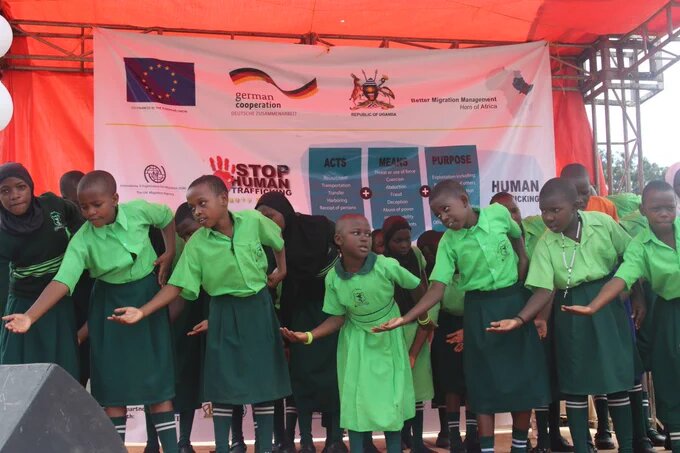
She said the government is committed to combat trafficking crimes by implementing record-keeping mechanisms and fostering information-sharing infrastructure. “It is important to enhance investigative and prosecution techniques, to effectively address this pressing issue,” she added.
The persistent poverty and unemployment/underemployment remain the key push factor for trafficking in persons, while the existence of non-skilled jobs in the Middle East was the major pull factor which promoted the crime.
The two factors are a big challenge to the prevention of trafficking in persons because many youths are desperate to try their luck where they think they can earn a better living.
Police receive specialized training
To strengthen the fight against trafficking in persons, a total of 24 officers from various agencies are attending a training session last week aimed at reviewing the Standard Operating Procedures (SOPs) for Investigating and Prosecuting Trafficking in Persons.
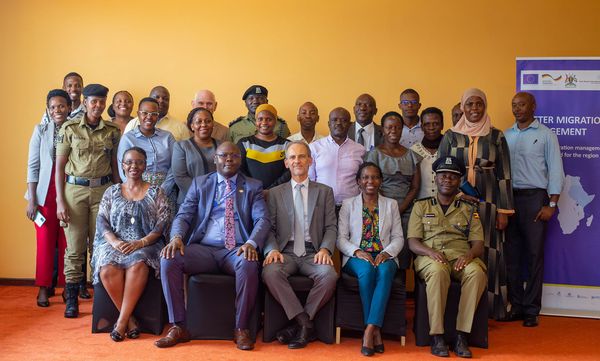
The training has been organized by the Office of the Public Prosecutions and the Uganda Police Force, in collaboration with the Ministry of Justice and Constitutional Affairs, the Ministry of Internal Affairs, and the Ministry of Gender, Labour, and Social Development.
Police said the primary focus of this training is to thoroughly examine the dissemination plan, which was initially envisioned on 3rd November 2022, and to define the precise timing and modalities for its successful implementation and monitoring.
The anticipated outcome of this training is the empowerment of participants with vital knowledge and collective initiatives that will make a tangible impact in safeguarding the vulnerable and upholding justice.
Together, these officers will stand as a formidable force against trafficking in persons, working tirelessly to protect the rights and well-being of those vulnerable to exploitation, police said.



